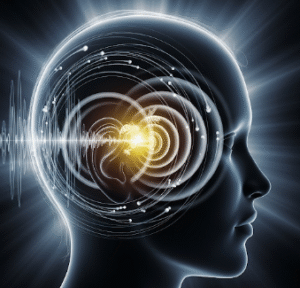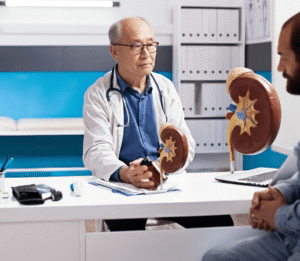Overview
Depression, also called major depressive disorder (MDD), is a common mental health condition marked by persistent sadness, loss of interest, and reduced energy. In Korea, depression affects a significant portion of the population, with rising awareness and access to mental health services in hospitals, community clinics, and specialized psychiatric centers. Early diagnosis and structured treatment are essential to prevent complications such as social isolation, occupational impairment, and suicide.
What is Depression?
Depression is a psychiatric disorder that affects a person’s mood, thoughts, behavior, and physical health. It can range from mild, short-term episodes to severe, chronic forms. Symptoms must persist for at least two weeks and interfere with daily functioning to meet diagnostic criteria. Depression can affect anyone but is more commonly seen in adults, with increasing prevalence among teenagers and the elderly in Korea.
Symptoms
- Persistent sadness or low mood.
- Loss of interest or pleasure in usual activities.
- Fatigue or decreased energy.
- Changes in appetite or weight (loss or gain).
- Sleep disturbances (insomnia or hypersomnia).
- Difficulty concentrating or making decisions.
- Feelings of worthlessness, guilt, or hopelessness.
- Physical complaints such as headaches or digestive problems.
- Thoughts of self-harm or suicide in severe cases.
Causes
- Genetic factors – family history of depression increases susceptibility.
- Neurochemical imbalances – abnormal serotonin, norepinephrine, and dopamine activity.
- Hormonal changes – thyroid disorders, postpartum hormonal shifts, or menopause.
- Environmental stressors – trauma, abuse, chronic illness, financial problems, or social isolation.
- Personality traits – high sensitivity, perfectionism, or low self-esteem.
Risk Factors
- Previous depressive episodes.
- Family history of depression or other psychiatric disorders.
- Chronic medical conditions (diabetes, heart disease).
- Exposure to trauma or stressful life events.
- Substance abuse or alcohol dependence.
- Social isolation or lack of support networks.
- Female gender and adolescence/elderly age groups are more vulnerable.
Complications
- Impaired social and occupational functioning.
- Increased risk of substance abuse.
- Chronic physical health problems.
- Suicidal ideation or attempts.
- Long-term cognitive impairment in severe cases.
- Family and relational strain.
Prevention
- Early identification and treatment of symptoms.
- Mental health awareness and stress management.
- Regular physical activity and healthy lifestyle habits.
- Building supportive social networks.
- Avoidance of substance abuse and risky behaviors.
Treatment Options in Korea
- Diagnosis
- Psychiatric evaluation using DSM-5 or ICD-10 criteria.
- Structured questionnaires such as PHQ-9 or HAM-D.
- Blood tests to rule out medical causes (thyroid, anemia, vitamin deficiencies).
- Medical Treatments
- Antidepressants: SSRIs, SNRIs, tricyclic antidepressants, and atypical antidepressants.
- Augmentation therapy: lithium, antipsychotics, or mood stabilizers in resistant cases.
- Electroconvulsive Therapy (ECT) for severe or treatment-resistant depression.
- Psychological Therapies
- Cognitive Behavioral Therapy (CBT) for negative thought restructuring.
- Interpersonal Therapy (IPT) for relationship and social stressors.
- Mindfulness-based therapy and supportive counseling.
- Rehabilitation & Support
- Outpatient follow-up in psychiatric clinics.
- Community-based mental health centers for counseling and social support.
- Family education programs to reduce relapse risk.
- Specialized Care in Korea
- Seoul National University Hospital – Psychiatry Department
- Samsung Medical Center – Psychiatry & Psychology
- Asan Medical Center, Seoul – Mental Health Programs
- National Center for Mental Health, Seoul – crisis intervention and community care.
✅ Next in the serial list: #29. Depression (melancholic) in Korea
Do you want me to continue with melancholic depression next?













